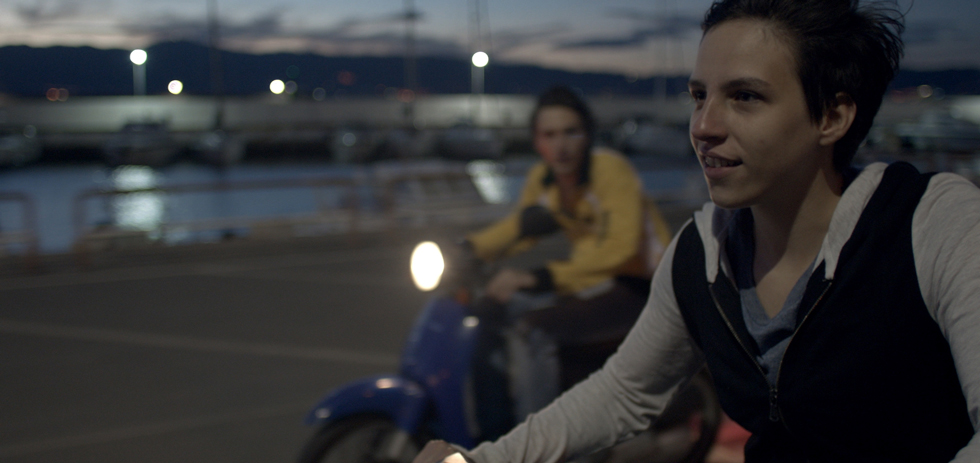
Not unlike its moody, near-mute tomboy heroine Grazia, Fabio Mollo’s South is Nothing tries to be five or six things at once, and as a result ends up feeling like less than one. The film – a feature debut for both its director and star Miriam Karlkvist – explores the lingering effects of a young man’s death on his teenage sister, struggling widowed father Cristiano (Vinicio Marchioni) and world-weary grandmother (Alessandra Costanzo). Set against a grim, impoverished backdrop on the Italian Strait of Messina, South is Nothing follows Grazia as she investigates her brother’s mysterious disappearance despite her father’s tight-lipped intransigence, her own tentative forays into a sexual identity, and her whole community’s apparent complicity in stultifying Mafia corruption. Shot in a combination of wide, low angles intensifying the grey Mediterranean sky and documentarian close-up, Mollo’s intention to portray his subject matter with seriousness and intensity is wholly appropriate for a film tying familial trauma to social decay. In the end, though, the film lives up to its title in an unfortunate way: an interesting premise and quietly evocative cinematography soon give way to an array of incomplete ideas, unsympathetic characters and frustrating inexpressiveness.
Grazia’s brother, Pietro, disappeared not long after she was born, and her father, a stoic and repressed fishmonger, responded with a self-imposed code of silence – Pietro was never mentioned again, except, we learn, in whispered conversations between Grazia and her grandmother. It is perhaps these snippets of memory that provoke Grazia to become so determined to find out the truth behind Pietro’s death, if it was even a death at all. Therein, though, lies the recurring problem with South is Nothing – we discover so little about its protagonist despite such an intense focus on her day-to-day life that it’s impossible to know why she, or any of the other characters, react and behave as they do. The implications of Mafia involvement in Pietro’s disappearance are not complemented at all by the other intrusion of organised crime into the story; we are given a few brief and abstruse conversations which imply the mob are pressuring Cristiano to sell up and leave the area, for reasons never explained. Indeed, the film creates a sense of oppressiveness so draining that instead of understanding the dilapidated state of Grazia’s surrounds as a textual element of a developed narrative, we read it as a metaphor for her and her father’s internal disconnectedness. The promised catharsis, though, never really comes. Instead of a stubborn reaction to tough circumstances, the inability to communicate displayed by so many of the characters ends up seeming like frustrating emotional immaturity. Worse, at times the script falls into some typical Eurodrama clichés: Grazia meets a boy (Andrea Bellisario) who is, of course, both from the wrong side of the tracks and in her class at school; Cristiano begins a tentative relationship with a local woman (Valentina Lodovini) which is sunk by his inability to meaningfully communicate with her; and the search for Pietro ends on a predictably ambiguous note.
Ultimately, though, there is no element of South Is Nothing that could be considered egregiously bad, and in truth each of the plot strands brings at least a few moments of real profundity. The suggestion that Grazia’s potential romantic interest may be complicated by her own gender identity issues – Karlkvist is strikingly androgynous – is not at all overplayed, and results in her eventual coupling with the boy, Carmelo, gaining an extra note of feeling. Furthermore, for all that it detracts from the narrative in other ways, the cinematography by Deborah Vrizzi is at times powerfully dispiriting, with dim greys punctuated by sequences of water photography which border on ethereal. The film’s basic weakness is noble enough: aiming to be an intimate family drama, portrait of socioeconomic stagnation, social realist coming-of-age mystery, and Gomorrah-style organised crime exposé is far too much to cram into eighty-nine minutes, but is hardly offensive or crass. It is through an inability to weave a tight enough web of disparate themes, rather than an inept or naive approach, that South is Nothing fails to impress.
